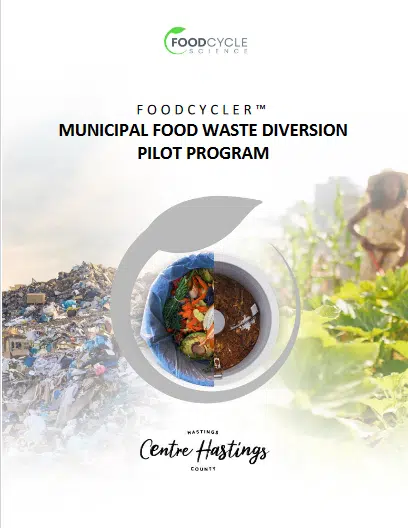Centre Hastings is going ahead with a composting pilot program as it aims to reduce food waste in the municipality.
Several municipalities have already signed onto the FoodCycler Food Waste Diversion Municipal Pilot Program.
On Wednesday, Centre Hastings council approved joining the study which will involve up to 100 households.
The group behind the pilot, Food Cycle Science, says every FoodCycler deployed is estimated to divert at least two tonnes of food over its expected lifetime.
That means 100 households participating would divert 200 tonnes of food waste saving the municipality an estimated $20,000 and could divert approximately 260 tonnes of greenhouse gas emissions.
FoodCyclers decrease the time of composting by using electricity to rapidly increase decomposition of organic material to dirt that can be discarded on the residents’ gardens as fertilizer.
Each cycle takes approximately eight hours to complete the decomposition of the organic material.

Food Cycle Science will subsidize the cost of the equipment.
The municipality will also cover a portion of the FoodCycler and the resident would have a financial commitment.
There will be two sizes of FoodCyclers to choose from and the municipality will cover $100 per unit, regardless of size.
The FoodCycler FC-30 (processing 2.5 litres of waste per cycle) will cost residents $150 while the larger FoodCycler Eco 5 (processing 5 litres of waste per cycle) will cost $300.
It’s hoped the 12-week pilot will be running before the end of the year.
Residents will be asked to track weekly usage of the FoodCycler during each week of the trial.
Food Cycle Science will then prepare a report summarizing program performance including waste diversion, potential for expansion, and other factors.






